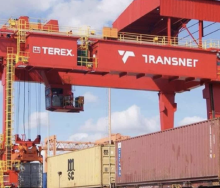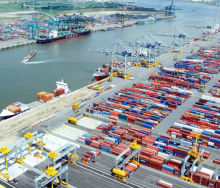A South African certification body has launched several free road safety initiatives that will see resources distributed to the growing number of truck drivers on the country’s roads.
JC Auditors (JCA) managing director Oliver Naidoo said the situation on the country’s roads was “a crisis that we can no longer ignore” and that firms in the transport industry needed to change the culture regarding road safety.
He said the growing number of trucks on the roads was leaving truck drivers vulnerable. At least 4 000 trucks passed through Marian Hill toll plaza in KwaZulu-Natal daily in 2020 and this increased by 50% to 6 000 in 2022.
“If we, as a country, are to make a mark on our unacceptably high crash rates and subsequent fatalities, then concerted and sustained actions will be required by all stakeholders, which is why JCA is taking a proactive position to raise awareness and support truck drivers. This was a key component of the overall road safety strategy which is often severely neglected, Naidoo said.
In a bid to address non-compliance with regulations, the firm has made its online road safety training available at no cost to all interested parties. The Transport Education and Training Authority-aligned course allows drivers to improve their skills and knowledge of road safety, in their own time, and at their own pace. The course focuses on the key principles of defensive driving, which makes drivers better prepared to respond to risks on the road.
Naidoo added that driver training was vital to improve road safety, considering that at least 80% of all crashes worldwide were attributed to driver behavioural issues.
The firm has also launched a free short message service (SMS) for truck drivers. Through this initiative, safety messages are sent continuously to drivers via their mobile messenger services or WhatsApp.
“The messages are all safety orientated and are a constant source of updates, reminders and information on safety for drivers,” Naidoo said.
A third initiative is the distribution of posters around driver safety.
“The posters convey important road safety messages and can be displayed throughout a company’s premises, in break rooms and even at truck stops, bringing the message of safety to our truck drivers,” he said.
It’s clear that there needs to be a change in culture around road safety.
“That starts with committed leadership. As companies, we need to elevate the status of our drivers, encouraging them to see themselves as professionals. Drivers in this country are often marginalised and their crucial role is often not fully appreciated,” he said.
JCA is also conducting a Truck Safety Survey that will provide critical insight into the current state of road safety and keep track of trends and developments.
“As an industry, we need to take action and produce real solutions if we are to make our roads safer. We need more initiatives and collaboration from a host of different stakeholders to make a difference,” Naidoo said.
“We need to think far more seriously about inculcating a safe driving culture. That includes training, coaching and providing a conducive environment that embraces road safety. We must take a structured approach to deal with the crisis. There is no silver bullet, but we must start chipping away if we are to avert further disasters on our roads.”
JCA will host its annual Driver Appreciation Day at Highway Junction in Harrismith on November 24 where it will interact with truck drivers, speaking to them about safety and the importance of their profession. A medical expert will also offer a free medical screening service to raise awareness of driver health and wellness.













